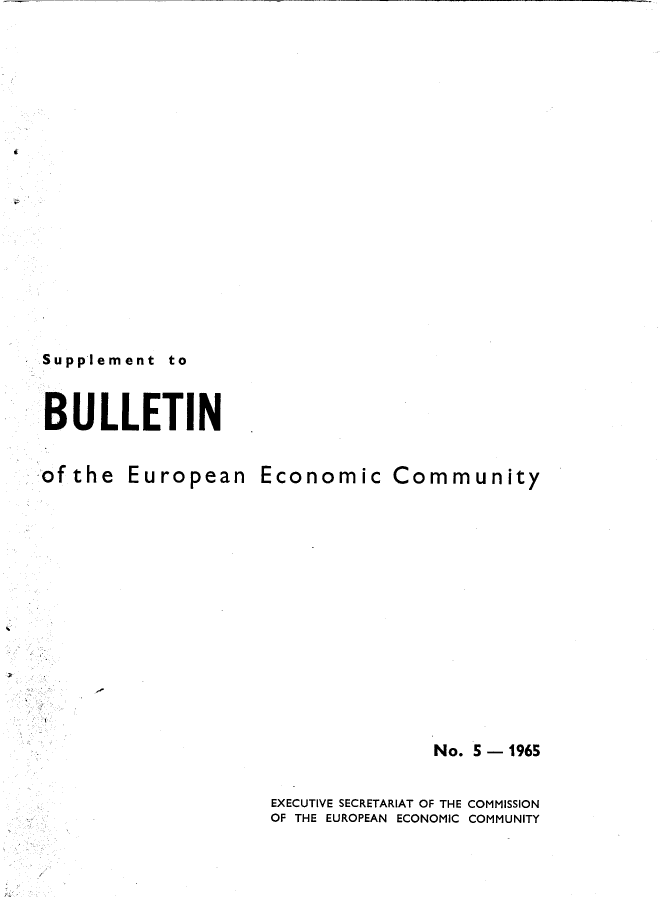
Proposal for a second directive for the harmonization among Member States
of turnover tax legislation, concerning the form and the methods of application
of the common system of taxation on value added
(submitted by the Commission to the Council)
Supplement
to
BULLETIN
·ofthe European Economic Community
No. 5-1965
Pages 26-35
EXECUTIVE SECRETARIAT OF THE COMMISSION
OF THE EUROPEAN ECONOMIC COMMUNITY